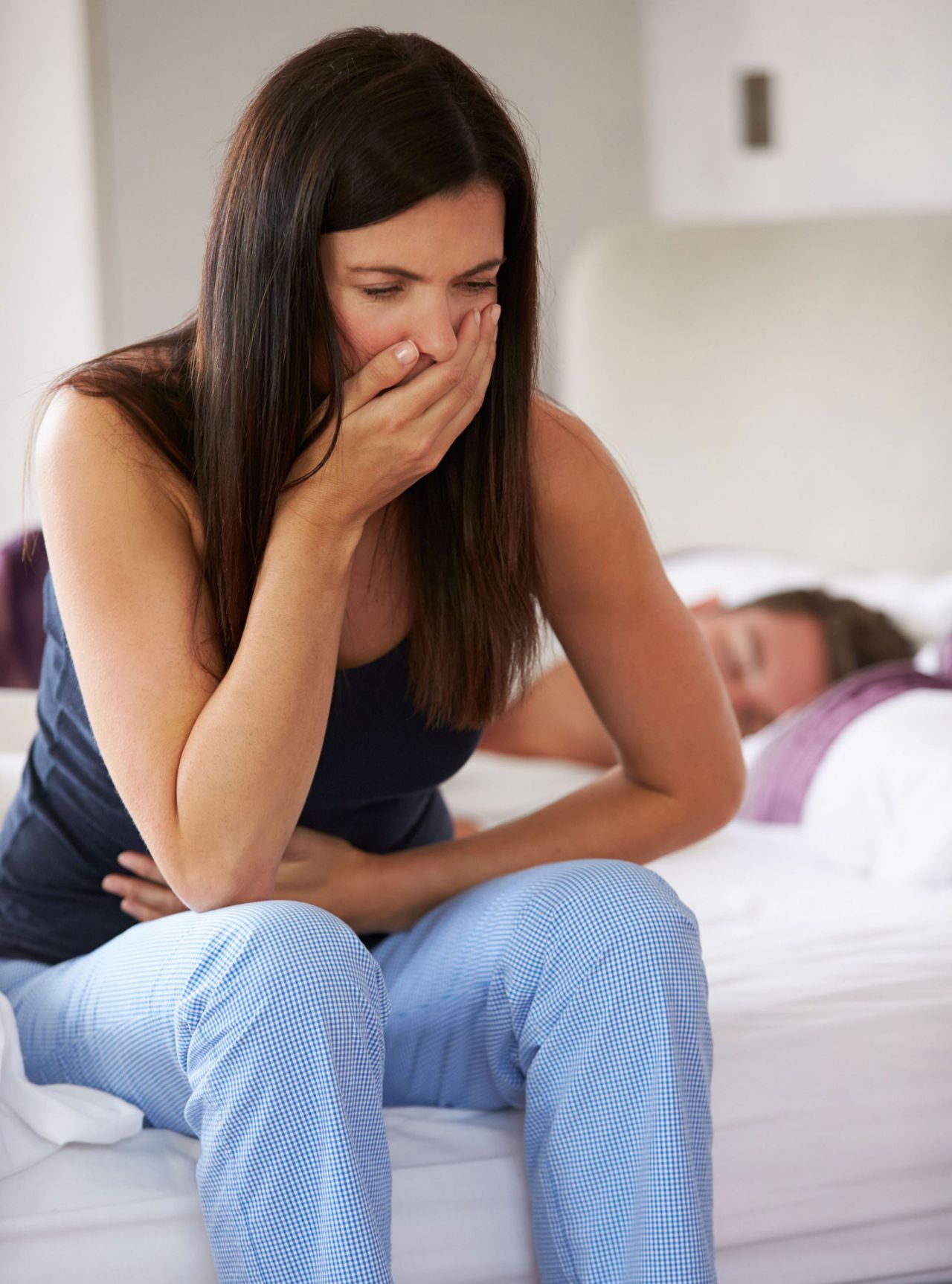What To Do If You Have Food Poisoning

If there's one thing that's guaranteed to put a downer on your dinner party fun, it's food poisoning. And although it's common,with one in 10 people suffering from it every year, it has recently become a major public health problem in the UK. The illness is of course caused by eating contaminated food, which in most cases will be contaminated by bacteria such as salmonella, or a virus like the norovirus. Food will usually become infected if it hasn't been cooked thoroughly enough, isn't stored correctly, isn't fully reheated, or has passed it's 'use by' date. Generally, if you suspect that this has happened to anything in your fridge - it's best to chuck it.
So while sitting with your head down the toilet certainly isn't anyone's idea of fun, there are things you can do to make your stomach feel a little less vulnerable if you are hit...
How to tell if it really is food poisoning...
Food poisoning could easily be mistaken for a passing sick bug, or considered to be the problem even if it's something a lot more serious.
Symptoms of food poisioning will usually include nausea, vomiting, diarrhoea and stomach cramps, although these could be accompanied by a high temperature and aching muscles, and will usually persist for at least 24-48 hours. How to tell if it's a stomach bug or food poisoning? Symptoms of food poisoning should usually appear within a few hours of eating the food, while a stomach bug could take days to appear. Ouch...
How to cure the illness...
Typically, nothing cures an illness like a good few days of rest and time spent in bed. However, there are things you can do to make your food poisoning bout a little more bearable...
Sign up for the woman&home newsletter
Sign up to our free daily email for the latest royal and entertainment news, interesting opinion, expert advice on styling and beauty trends, and no-nonsense guides to the health and wellness questions you want answered.
Suck on ice chips or take small sips of water. Rehydration is key after instances of vomiting. Just be cautious not to drink too much water or take big gulps, as this could aggravate the illness and cause another wave of sickness.
Ingest ginger. Ginger can be a brilliant home cure to aid with an assortment of digestive problems. Drinking ginger tea after eating bland foods such as toast or rice (or, if you can stomach it, a ginger slice) can help to ease nausea. Simply add one teaspoon of grated ginger to a cup of hot water - although you may want to add an extra teaspoon of sugar or honey to ease the taste...
Avoid food or drink that will agitate your stomach.Although some of our favourite things, caffeine, alcohol and spicy or fatty foods will all make vomiting worse if eaten when suffering food poisoning.
Try garlic. Brace yourselves. If you can face it, chugging down a cup of hot water with a whole clove of garlic in it could help with the symptoms of the illness. Try it if you dare...
Who is particularly vulnerable to food poisoning?
Elderly people (over the age of 65) and people with a pre-existing health condition should generally be more cautious if they fall prey to food poisoning. They're more susceptible to further complications such as dehydration if they are to contract it, but help is at hand - oral rehydration solution can be particularly helpful to vulnerable people. Available in sachets from any good pharmacy, simply pop the mixture into water, which help help your body to replace salt and glucose lost through dehydration.
Some doctors even suggest that people over the age of 65 avoid certain foods to decrease their risk of being struck down by food poisoning, including soft cheeses, pate, cold meats, sushi and raw or undercooked eggs, such as those found in mayonnaise and drinks like eggnog.
When would I need to seek further medical advice?
If you're a fit, healthy adult, you can usually expect symptoms of food poisoning to pass quickly, with no need to see a GP. However, there are people and instances where further medical support should be sought...
- If you are pregnant
- If you have an underlying health problem, such as diabetes or kidney disease
- If your symptoms are severe and/or don't improve after a few days, or get worse
- If you're displaying symptoms of severe dehydration, such as sunken eyes, a rapid heartbeat or confusion.
Where to find help out of hours...
If you're concerned outside of normal doctors hours, head to the hospital. Doctors may then carry out tests on your stool sample to find out what is causing your persistent symptoms, and may even prescribe antibiotics if a bacterical infection is the root cause. If your vomiting is also particularly severe, doctors at the hospital may give you anti-emetics to help ease it.
-
 32 unexpected things you'll find on a cruise ship that will enhance your holiday
32 unexpected things you'll find on a cruise ship that will enhance your holidayIce bars, stargazing capsules, experience spas and even a 'magic carpet' - cruise lines have really upped their game!
By Lauren Hughes Published
-
 Gillian Anderson reaches for this peachy blush when her skin looks 'exhausted' - and it's MUA-approved
Gillian Anderson reaches for this peachy blush when her skin looks 'exhausted' - and it's MUA-approvedWe love a celebrity product recommendation, but it's more so when it's also a makeup artist's go-to.
By Naomi Jamieson Published